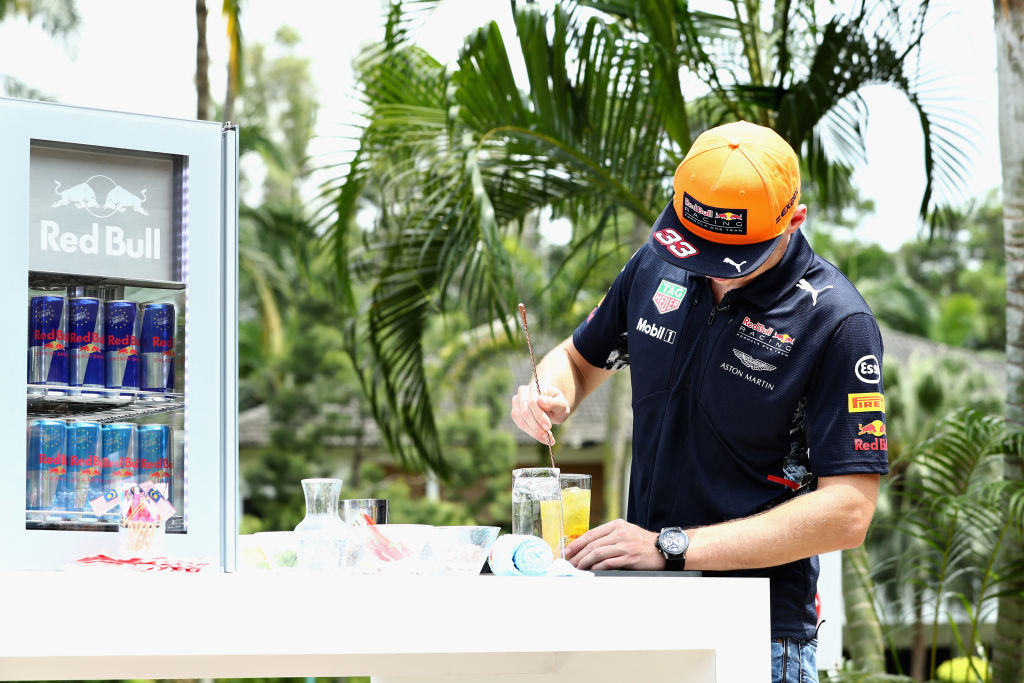Imagine that you are sitting in the boardroom of a major global drinks company, charged with producing a new product that will rival the position of Coca-Cola as the world’s second most popular cold non-alcoholic drink. How would you respond?
Well, the first thing I would say, unless I were in a particularly mischievous mood, is something like, ‘We need to produce a drink that tastes nicer than Coke, that costs less than Coke, and that comes in a really big bottle so people get great value for money.’ What I’m fairly sure nobody would say is, ‘Hey, let’s try marketing a really expensive drink, that comes in a tiny can … and that tastes kind of disgusting.’
Yet that is exactly what one company did. And by doing so they launched a soft drinks brand that would go on to rival Coca-Cola.
That drink was Red Bull. When I say that Red Bull tastes ‘kind of disgusting’, this is not a subjective opinion. Before Red Bull launched outside of Thailand, where it had originated, the licensee approached a research agency to see what the international consumer reaction would be. The agency, a specialist in researching the flavor of carbonated drinks, had never seen a worse reaction to any proposed new product.
Normally in consumer trials of new drinks, unenthusiastic respondents might phrase their dislike diffidently: ‘It’s not really my thing’, ‘It’s slightly cloying’, ‘It’s more a drink for kids’. In the case of Red Bull, the criticism was almost angry: ‘I wouldn’t drink this piss if you paid me to’. Yet no one can deny that the drink has been wildly successful. Profits from the six billion cans sold annually are sufficient to fund a Formula 1 team on the side.
The simple premise to my book, Alchemy: The Dark Art and Curious Science of Creating Magic in Brands, Business, and Life, is that this kind of illogic, though the modern world often turns its back on it, is uniquely powerful. Alongside the inarguably valuable products of science and logic, hundreds of seemingly irrational solutions to human problems are waiting to be discovered, if only we dare to abandon conventional logic in the search for answers.
Logic has proved so reliable in the physical sciences that we now believe it must be applicable everywhere — even in the messier field of human affairs. The models that dominate human decision-making today are heavy on logic, and light on magic: a spreadsheet leaves no room for miracles. But what if this approach is wrong
What if, in our quest to recreate the certainty of the laws of physics, we are too eager to impose consistency and certainty in fields where they have no place?
Take work and holidays. Some 68 percent of Americans would pay to have two weeks more holiday than the meagre two weeks most enjoy at present, and they’d accept a 4 percent pay cut in return for double the amount of vacation time.
But what if there were no cost whatsoever to increasing everyone’s vacation allowance? What if we discovered that greater leisure time would benefit the US economy, both in terms of money spent on leisure goods and also in greater productivity?
Perhaps people with more vacation time might be prepared to work for longer in life, rather than retiring to a Florida golf course as soon as it became affordable? Or perhaps they might simply be better at their jobs if they were reasonably rested and inspired by travel and leisure? Besides, it is now plausible that, for many jobs, recent advances in technology mean there is little difference in the contribution you make to your workplace, whether you are in a cubicle in Boise, Idaho or on a beach in Barbados.
There is an abundance of supporting evidence for these magical outcomes. The French are astonishingly productive when they are not on holiday. The German economy is successful, despite six weeks’ annual leave being commonplace. But there is no model of the world that allows for America to contemplate, let alone trial, this possibly magical solution. In the left-brain, logical model of the world, productivity is proportional to hours worked, and a doubling of holiday time must lead to a corresponding four percent fall in salary.
The technocratic mind models the economy as though it were a machine: if the machine is left idle for a greater amount of time, then it must be less valuable. But the economy is not a machine – it is a highly complex system. Machines don’t allow for magic, but complex systems do. Engineering doesn’t allow for magic. Psychology does.
Our addiction to logic has created a magic-free world of neat economic models, business case studies and narrow technological ideas, which give us a wonderfully reassuring sense of mastery over a complex world. Often these models are useful, but sometimes they are inaccurate or misleading. And occasionally they are highly dangerous.
We should never forget that our need for logic and certainty brings costs as well as benefits. The need to appear scientific in our methodology may prevent us from considering other, less logical and more magical solutions, which can be cheap, fast-acting and effective.
The mythical ‘butterfly effect’ does exist, but we don’t spend enough time butterfly hunting. Here are some recent butterfly effect discoveries, from my own experience:
- A website adds a single extra option to its check-out procedure — and increases sales by $300m per year
- An airline changes the way in which flights are presented — and sells £8m more of premium seating per year
- A software company makes a seemingly inconsequential change to call-center procedure — and retains business worth several million pounds
- A publisher adds four trivial words to a call-center script — and doubles the rate of conversion to sales
- A fast-food outlet increases sales of a product by putting the price…up
All these disproportionate successes were entirely illogical. All of them worked. And all of them, apart from the first, were produced by a division of my advertising agency, Ogilvy, which I founded to look for illogical solutions to problems. We discovered that problems almost always have a plethora of illogical solutions waiting to be discovered, but that nobody is looking for them; everyone is too preoccupied with logic to look anywhere else.
We also found, rather annoyingly, that the success of this approach did not always guarantee repeat business; it is difficult for a company, or indeed a government, to request a budget for the pursuit of such magical solutions, because a business case has to look logical.
It’s true that logic is usually the best way to succeed in an argument. But if you want to succeed in life it is not necessarily all that useful; entrepreneurs are disproportionately valuable precisely because they are not confined to doing those things that make sense to a committee.
Interestingly, the likes of Steve Jobs, James Dyson, Elon Musk and Peter Thiel are often certifiably bonkers. Henry Ford famously despised accountants; the Ford Motor Company was never audited while he had control of it.
When you demand logic, you pay a hidden price: you destroy magic. And the modern world, oversupplied as it is with economists, technocrats, managers, analysts, spreadsheet-tweakers and algorithm designers, is becoming a more and more difficult place to practice magic — or even to experiment with it. In Alchemy, I hope to remind everyone that magic should have a place in our lives. It’s never too late to discover your inner alchemist.
Rory Sutherland is vice-chairman of Ogilvy UK and aSpectator columnist. This excerpt is taken from his new book, Alchemy: The Dark Art and Curious Science of Creating Magic in Brands, Business, and Life (William Morrow), released today.

























